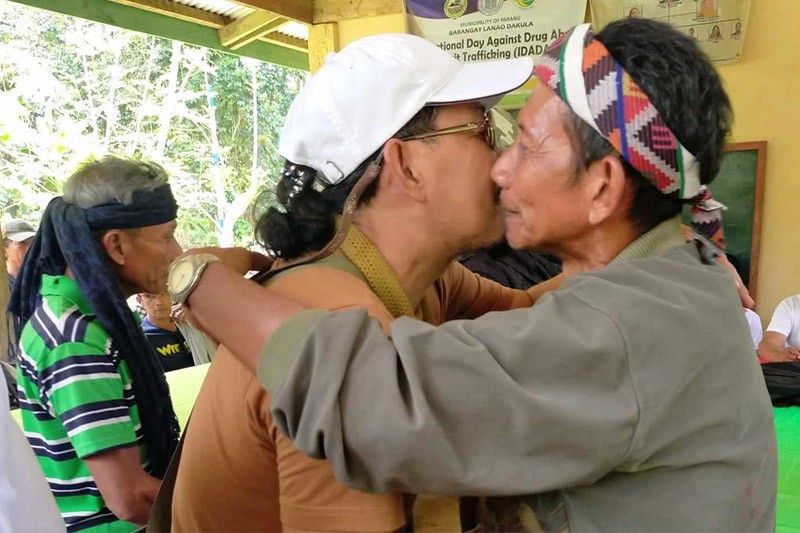Warring Sulu clans end 50-year bloody 'rido'

COTABATO CITY — Two feuding Tausug clans in Sulu reconciled on Monday, ending a bloody 50-year conflict that resulted in at least 50 fatalities on each side and left at least 13 other individuals injured.
The two clans, one currently led by Fhena Idjirani in Parang town, and the other by Banden Barahama, whose relatives and followers are scattered in a number of barangays in Indanan, forged a peace covenant brokered by police officers in both towns and the director of the Sulu provincial police, Col. Narciso Paragas.
Paragas and the director of the Police Regional Office-Bangsamoro Autonomous Region, Brig. Gen. Allan Nobleza, separately announced on Tuesday the settlement of the deadly "rido," meaning clan war in most Moro vernaculars, achieved through the joint intercession of members of the Sulu Provincial Peace and Order Council under Gov. Hadji Abdusakur Tan Sr., the mayors of Indanan and Parang, and the Islamic religious community in the province.
The two clans reconciled during a symbolic rite on Monday in Parang, witnessed by police officers and leaders from different towns in Sulu, one of the six provinces in the Bangsamoro Autonomous Region in Muslim Mindanao that also covers the cities of Cotabato, Marawi and Lamitan.
Tausug elders in Indanan and Parang told reporters on Tuesday that the rido between the two groups erupted in 1974, sparked by affronts to clan pride and honor, political differences and squabbles for control of territories.
“What is meaningful about this clan war settlement is that it happened during the Islamic Ramadhan fasting season,” Nobleza said.
Muslims fast from dawn to dusk during the Ramadhan, a holy month in Islam, lasting 29 to 30 days based on the lunar Hijrah calendar, as a religious obligation, a form of sacrifice and as reparation for wrongdoings.
Local officials, citing records from the police and different barangay governments, said that the two clans lost no fewer than 50 members each in gunfights in the past 50 years, among them minors and women.
“Credit for this feat should go to provincial and municipal leaders in Sulu and our police personnel there, the Muslim religious groups and military officials under different units assigned in the province who convinced both sides to bury their hatchets and live in harmony again,” Nobleza said.
Members of the business community in BARMM, among them the lawyer-entrepreneur Ronald Hallid Torres, who is chairman of the Bangsamoro Business Council, were elated with the reconciliation of the two clans, whose hometowns are together recommended by the Sulu provincial government, the Bangsamoro Board of Investments, or BBOI, and the region’s Ministry of Trade, Investments and Tourism, as potential sites for capital-intensive agricultural projects that investors from outside can safely venture in.
“There is no more presence of the Abu Sayyaf in Sulu as a result of the unrelenting anti-terror campaign of its provincial governor, the police and military units there. Investors will soon come in, perhaps sooner than expected,” BBOI’s chairman, Mohammad Omar Pasigan, said.
- Latest
- Trending
































